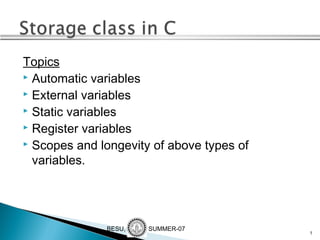This document discusses different types of variables in C programming, including their scope and longevity. It defines automatic, external, static, and register variables. Automatic variables are declared within a function and last only for the function's duration. External variables are declared outside functions and are globally accessible. Static variables retain their value between function calls. Register variables are stored in machine registers for faster access. The document provides examples and explanations of when and how to use each variable type.

















